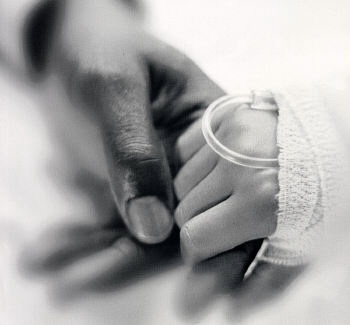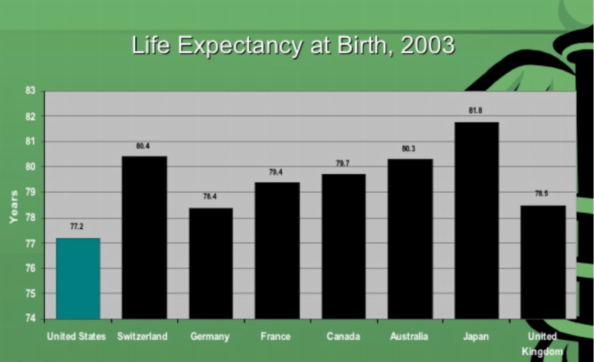

Back to Americans For Morality Home Page
The Sick of the World Is being alive a right? Life, liberty and the pursuit of happiness are the reasons we have a federal government. Health at home and abroad is perhaps one of the most serious and misunderstood issues in the United States. Republican leaders are often heard to say that America has the best healthcare in the world. Of course no one asks the question, "To whom we are being compared?" Are we being compared to other industrialized nations or 3rd world countries when one makes this statement? We certainly seem to have more money than everyone else. But how do we manage it? How does insurance affect health quality and costs? How does our pharmaceutical industry and FDA regulations affect its quality? How does the American free-market affect health in the U.S. and abroad? Although this website cannot comprehensively answer all of these questions, this website can explain the basics and help you understand the moral implications on U.S. and world health depending on if you vote Republican or Democrat.
Is being alive a right? Life, liberty and the pursuit of happiness are the reasons we have a federal government. Health at home and abroad is perhaps one of the most serious and misunderstood issues in the United States. Republican leaders are often heard to say that America has the best healthcare in the world. Of course no one asks the question, "To whom we are being compared?" Are we being compared to other industrialized nations or 3rd world countries when one makes this statement? We certainly seem to have more money than everyone else. But how do we manage it? How does insurance affect health quality and costs? How does our pharmaceutical industry and FDA regulations affect its quality? How does the American free-market affect health in the U.S. and abroad? Although this website cannot comprehensively answer all of these questions, this website can explain the basics and help you understand the moral implications on U.S. and world health depending on if you vote Republican or Democrat.
 In other words, more health care workers seem to be attracted to a profession that is not only better operated, but sees all humans as equally valuable, regardless of income.
In other words, more health care workers seem to be attracted to a profession that is not only better operated, but sees all humans as equally valuable, regardless of income.



 Here is another fact about health: Millions of people are sick and dying throughout the world, the U.S. can do something about it and has chosen not to. Why? For some, it is simply a lack of awareness.
Here is another fact about health: Millions of people are sick and dying throughout the world, the U.S. can do something about it and has chosen not to. Why? For some, it is simply a lack of awareness.

Back to Americans For Morality Home Page